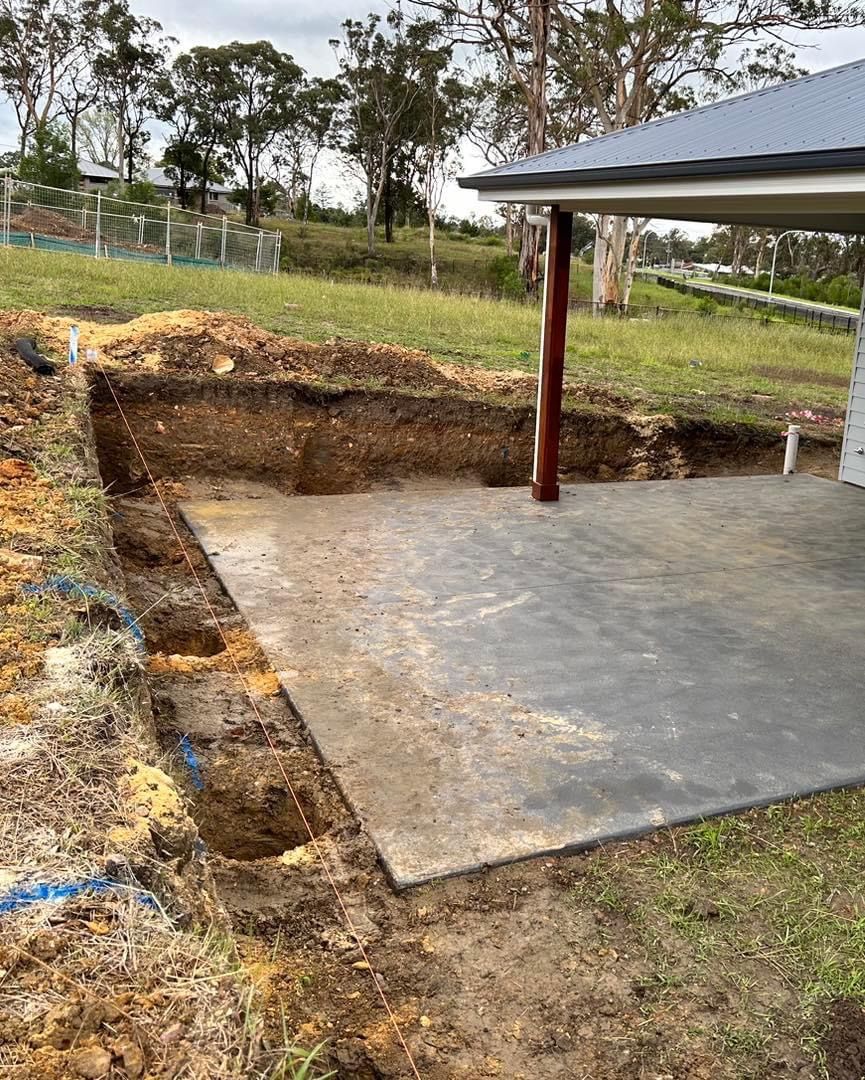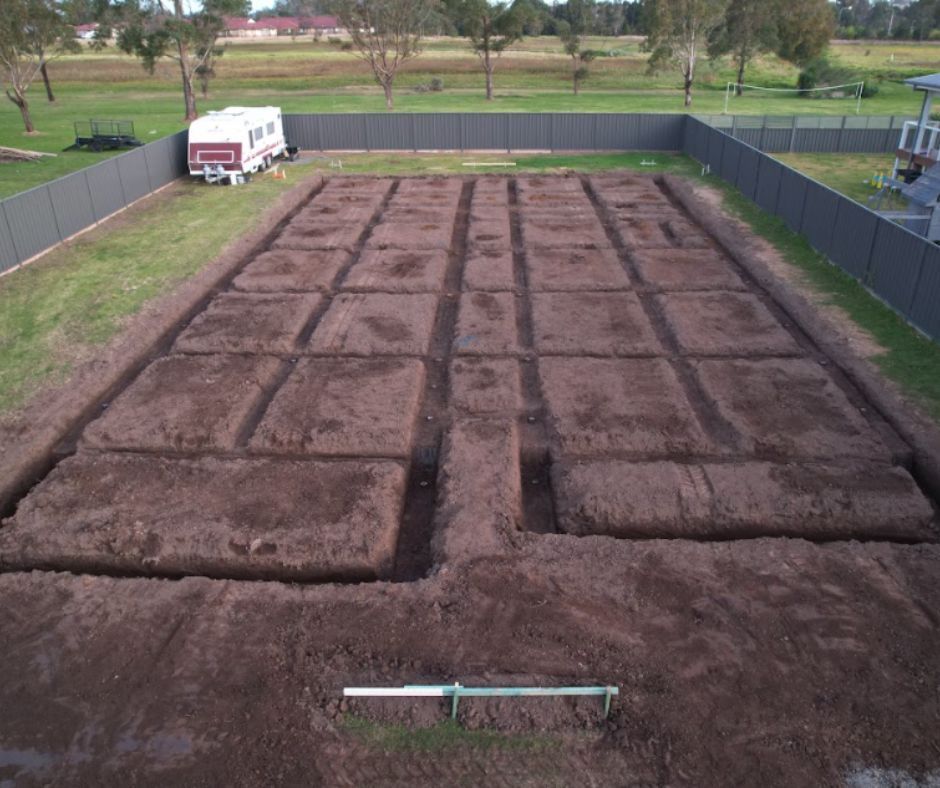Differences Between Bulk Excavation vs Detailed Excavation
Excavation is the backbone of any construction project – it’s where everything begins, from foundations to utilities and more. Whether you're digging a hole for a new building, preparing a site for a driveway, or laying down infrastructure, the importance of excavation can't be overstated.
Understanding the two main
types of excavation—bulk excavation and
detailed excavation—is crucial for homeowners and businesses alike. While both methods are essential, they serve different purposes and require different approaches.
Read on to know what sets these two excavation types apart and why they are important for your next project.
Understanding the Difference Between Bulk and Detailed Excavation
When it comes to excavation in construction, you'll often hear the terms bulk and detailed excavation thrown around. But what do they actually mean and how do they apply to your project?
Knowing the difference between bulk and detailed excavation and their applications can make a world of difference, especially in terms of time, cost and precision. By understanding the roles they play in construction, you can better plan your project and ensure you're taking the best approach for your specific needs.
Importance of Bulk and Detailed Excavation
Understanding bulk excavation vs detailed excavation isn’t just about terminology. It’s also about planning and executing your project successfully. Here are a few key reasons why this knowledge is essential:
Correct Planning and Budgeting
Understanding the differences allows for better resource allocation and excavation cost estimation. This means no nasty surprises when the bill arrives!
Ensures Appropriate Equipment Use
Choosing the right machinery for the job saves time and improves efficiency. Bulk excavation often requires heavy-duty equipment, while detailed excavation might need precision tools.
Tailored to Project Needs
Bulk excavation is perfect for large-scale projects, while detailed excavation is ideal for precision work. Knowing which one to use means your project will run smoothly.
Mitigates Risk of Errors
A clear understanding reduces the risk of over- or under-excavation, which can delay projects and increase costs.
Optimises Site Preparation
Proper excavation prepares the site for foundations, utilities and infrastructure, ensuring everything fits perfectly in place.
Compliance with Regulations
Excavation work must adhere to legal and safety regulations. Knowing which one to leverage can help you stay compliant.
Difference Between Bulk and Detailed Excavation
To get a better grasp between bulk excavation vs detailed excavation, let’s define them further.
What is Bulk Excavation?
Bulk excavation is the process of removing large amounts of material from a site, typically needed for major construction projects such as roads, highways, large buildings, car parks, sports fields and houses to name a few.
By efficiently clearing significant volumes of earth, bulk excavation sets the foundation for substantial developments, ensuring that the land is adequately prepared for the structures that will follow.
What is Detailed Excavation?
Detailed excavation is a specialised digging method that targets smaller, defined areas with high precision. Unlike bulk excavation, which involves large-scale earthmoving, this approach focuses on accuracy to ensure the stability and safety of structures. It utilises various techniques and tools to guarantee that every aspect of the excavation is executed flawlessly.
By concentrating on specific areas, detailed excavation lays the foundation for subsequent construction phases, ensuring that everything is positioned securely and correctly.

Bulk Excavation vs Detailed Excavation: The Application of Each
Understanding the applications of bulk and detailed excavation is key to choosing the right method for your construction project. Each type serves distinct purposes that cater to different aspects of building and site preparation.
Applications of Bulk Excavation
1. Large Excavations
Bulk excavation is crucial for major construction projects such as roads, railways and large buildings. It involves the efficient removal of significant volumes of earth to create stable foundations that can support large, heavy structures.
2. Site Leveling
Proper site levelling is essential for a stable foundation. Bulk excavation prepares the land by bringing it to the required level, which prevents future settling or shifting and ensures the structural integrity of the building.
3. Infrastructure Development
For infrastructure projects like car parks and sports fields, bulk excavation clears and prepares large areas of land. This method creates functional spaces by effectively managing earthmoving requirements.
Applications of Detailed Excavation
1. Footings for Foundations
Detailed excavation focuses on accurately digging footings that support concrete slabs or building foundations. This precision ensures the area meets specific dimensions and depth.
2. Driveway Preparation
A needs to be level and stable. Detailed excavation ensures the ground is properly excavated and well-prepared for driveway construction, preventing cracking or sinking.
3. Retaining Wall Footings
Precision in detailed excavation is vital for creating footings for retaining walls. This careful digging prevents future structural issues by ensuring that the footings are correctly shaped and positioned.
4. Service Trenches
Detailed excavation is essential for digging service trenches for utilities like water, gas and electricity lines. This method ensures that trenches meet safety and efficiency standards, facilitating easier access for future maintenance.
Equipment Used in Bulk and Detailed Excavation
The type of equipment used in excavation depends on the material being dug, the size and complexity of the site and how much material needs to be moved. Here’s a look at the common equipment used for both types of excavation:
Heavy-Duty Excavators
Essential for both bulk and detailed excavation, but larger ones are typically used for bulk projects to handle the heavy lifting.
Bulldozers
These powerful machines are often used in bulk excavation to push large amounts of material efficiently.
Dump Trucks
A must-have for transporting excavated materials from the excavation to the dumping site.
Graders
After bulk excavation, graders are used to level the land, ensuring it’s smooth and even for the next stage of construction.
Rollers
Used to compact soil after excavation to ensure a levelled ground for the foundation.
Precision Tools
For detailed excavation, you’ll often see smaller equipment, like mini-excavators or even hand tools, being used to ensure accuracy for those delicate jobs that require a finer touch.
Got Bulk Excavation vs Detailed Excavation Inquiry? Contact MRN Excavation Today!
If you’re scratching your head trying to figure out the difference between bulk and detailed excavation and which one suits your next project, MRN Excavation is here to help! Our skilled team is well-versed in handling excavation projects of any scale, whether in Campbelltown or Wollongong, we ensure precision and efficiency in every job.
Get in touch with us for expert advice and get your project off to a great start.
Specialist team for your excavation needs across Sydney, Wollondilly, South Coast & surrounding areas.
CONTACT US
Wollongong & Sydney, Menangle, NSW, Australia
MRN Excavations | Proudly Powered by DSD



